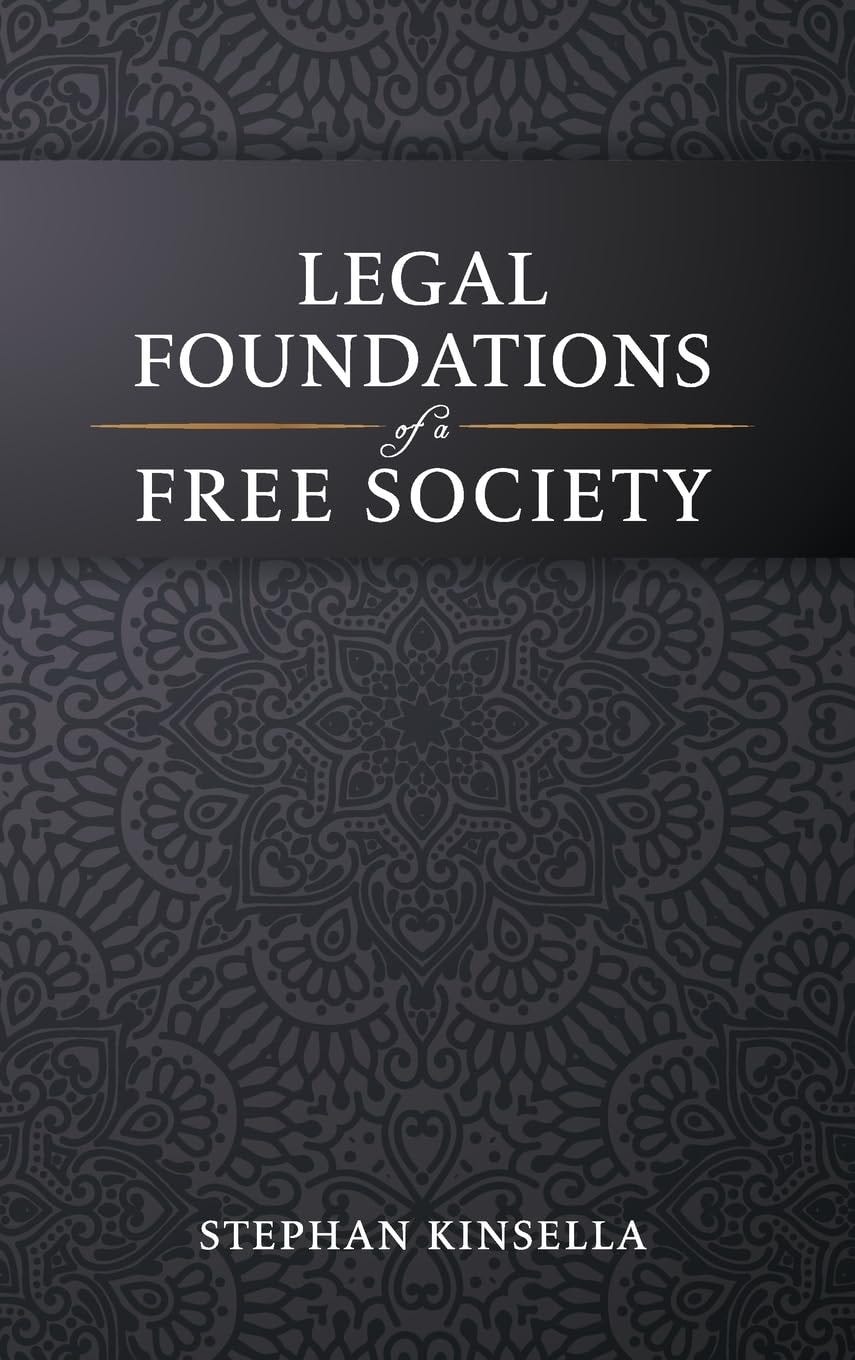From the White-PillBox: Part 64
Stephan Kinsella's "Legal Foundations of a Free Society"
Stephan Kinsella has made a significant contribution to society’s progress toward a free society. If a stateless culture is in our future, it will need legal foundations. His recent book, Legal Foundations of a Free Society, delivers the goods.
Over the last half-century a tremendous body of scholarly work has been produced on the philosophy of liberty. But it is only in the recent decade that we have seen some of the foundational pillars forming that will make possible societies that function without a State (i.e., based purely on the principles of self-ownership, non-aggression, and private property, referred to as anarcho-capitalism or anarcho-libertarianism).
Some of these indicators are: political decentralization (such as regional secession movements); monetary decentralization (such as the emerging cryptocurrencies); media decentralization (podcasts, alternative outlets); the increase in homeschooling and unschooling; 3D printing advancements; and perhaps most fundamentally, the public’s slow but evident trend away from its near-mystical belief in the very legitimacy of government.
As Kinsella makes clear, the State exists parasitically on society. While trade and technology enrich us, the State in all its forms impedes peace and progress. Given the trends toward freedom listed above, the State’s relationship to society cannot continue as it is. The near future holds only a few possibilities: all societies disastrously retrograde under the State, or not all do so. In the latter case, enclaves of free societies have a chance to emerge.
To be stable and persist, free societies will need to form organically, that is, they cannot be centrally planned. They will need a generally accepted respect for individual self-ownership, and for the anarcho-libertarian understanding of private property.
And one of the foundations that will help secure them will be their legal framework.
This is Kinsella’s critical and timely contribution. His book compiles many years of research and thinking regarding that key pillar: law. He shows how disputes are handled absent the State under systems of voluntary competitive legal arrangements. Importantly, he explains the theoretical and philosophical underpinnings of a free society’s legal framework.
Kinsella brings his legal skills to bear in several ways. He uses clear language and his words are defined (we are not left with a vague and fuzzy mush of terminology and concepts). He supports what he says: the book is heavily footnoted with in-depth appendices where needed. His thinking is integrated: he presents legal perspectives that connect the dots between economics, traditional common law, civil law, and case law; and his legal analysis crosses time and territory (U.S., State-level, English and Roman, for example). He is relentlessly logical (e.g., his arguments against all forms of so-called Intellectual Property are, for all practical purposes, bullet-proof).
Kinsella explains how a stateless society can follow common sense norms and maintain stability. He emphasizes how practical law cannot be legislated: “Law has to arise from custom, from contract, from agreement, from decentralized processes…”. He clarifies that property lies at the root of any attempted social system. And that only the anarcho-libertarian model is coherent and consistent in its approach to reducing conflict.
The White Pill
Advocates of freedom often view a stateless society as a new condition awaiting us at an unspecified future time. Kinsella gives us reasons to see that its emergence is perhaps already underway, as man’s moral sensibilities mature past the myth of the State. If freedom is in our future, scholarly works such as this will help smooth the transition.

